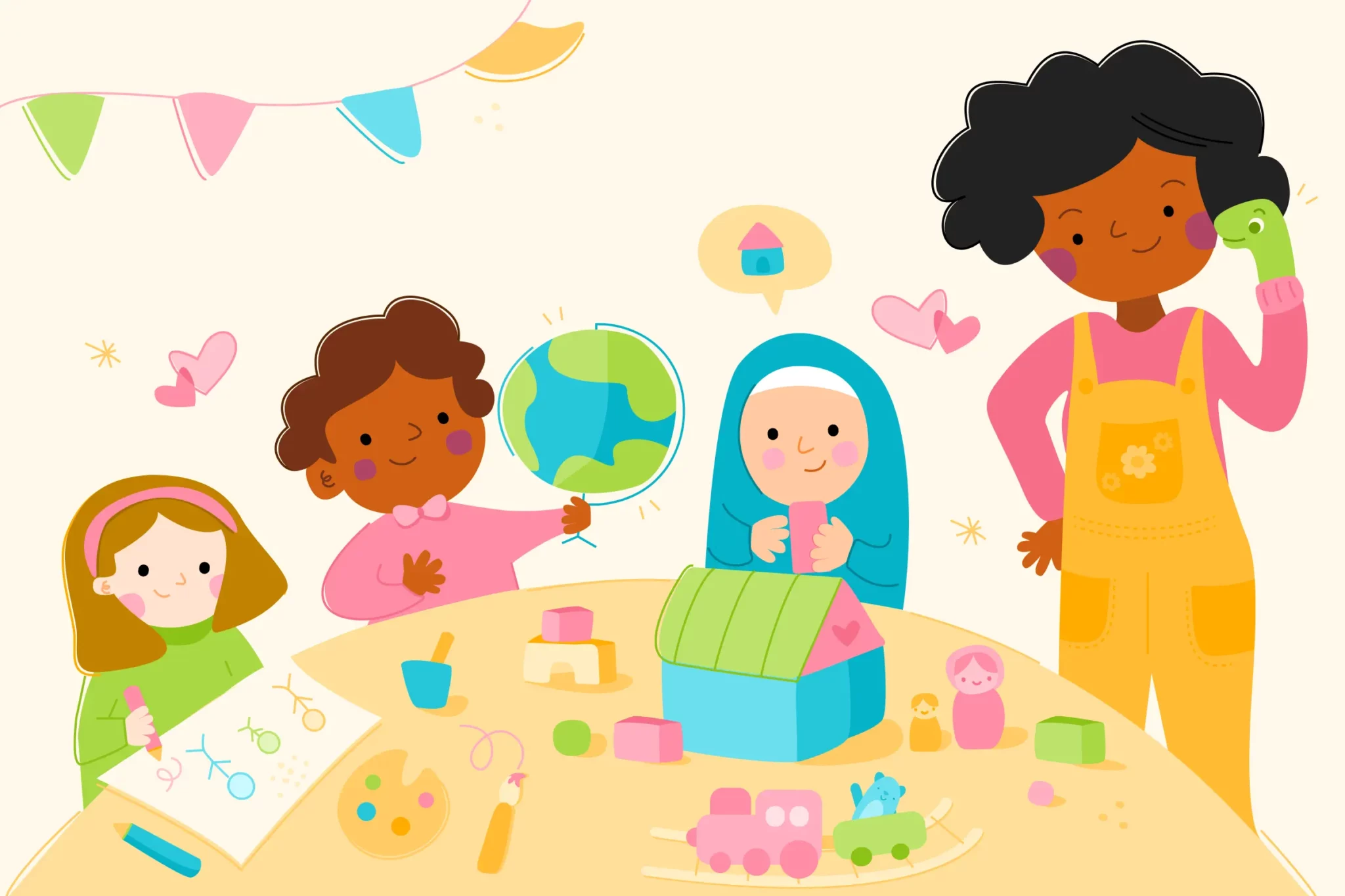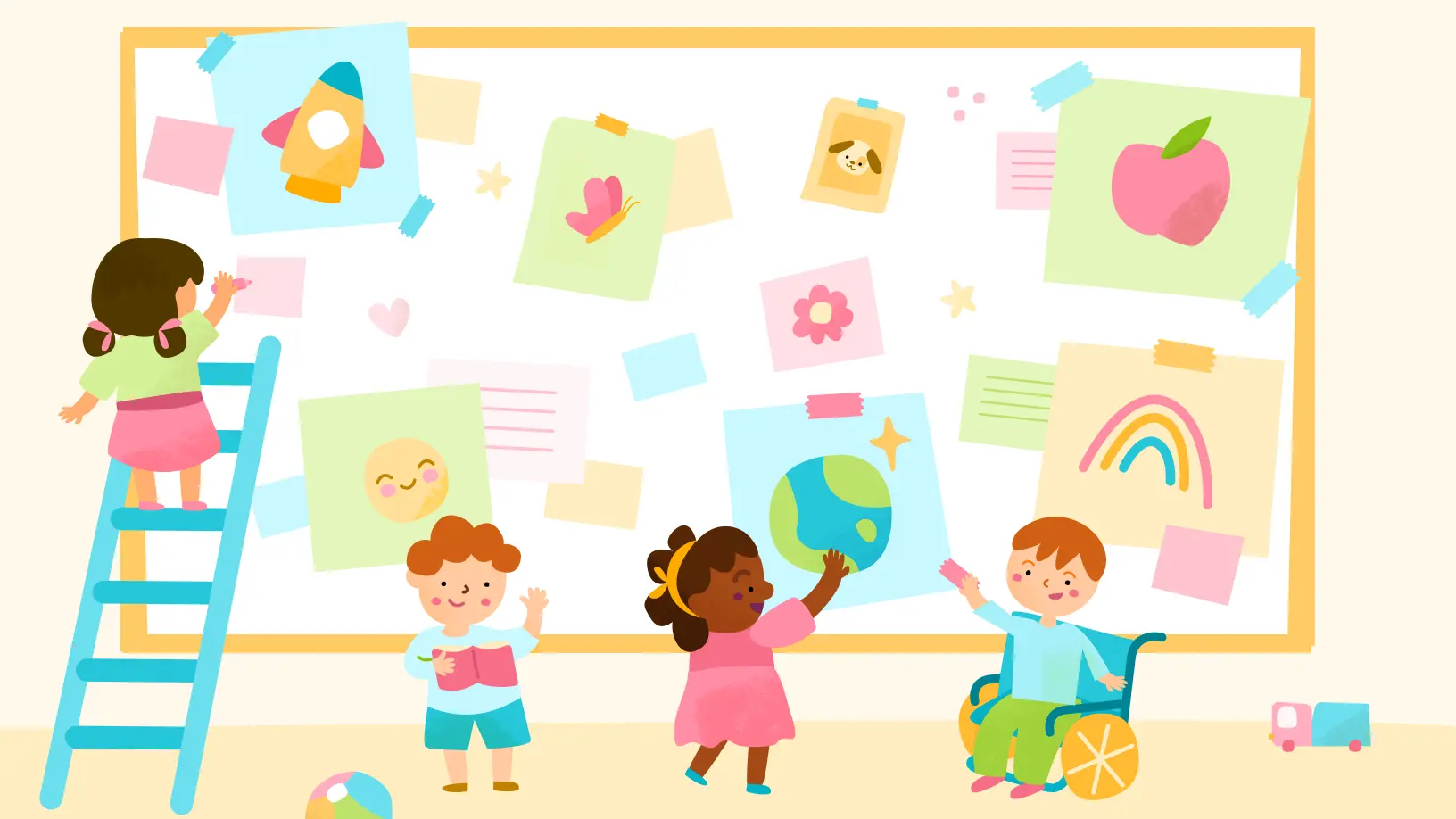Creating a Sense of Belonging in Early Childhood
Have you ever had that feeling when you join a group and after a few interactions, you think, “I’ve found my tribe!”? This ‘sense of belonging’ embodies the feeling of safety, inclusion, and support within a group, fostering emotional connection and wellbeing.
Cultivating a sense of belonging is really important in childhood education and development, influencing emotional, social, cognitive, and cultural growth. When you create a secure, nurturing environment, it fosters enduring connections and lays the foundation for lifelong learning.
In this collection, we bridge the gap between theory and practice by placing the child at the heart of the learning and development process. Drawing inspiration from Bronfenbrenner’s ecological development model, our resources are designed to support you in assuming the roles of documenter, communicator, facilitator, and nurturer. We understand that in the context of early childhood settings, theory can often seem detached from practical realities. However, we are confident that these resources will provide you with the practical tools necessary to effectively translate theory into actionable strategies.
Keeping the child at the centre with Bronfenbrenner
When we place the child at the heart of learning and development, we recognise that the child isn’t a passive recipient but an active explorer in their world. Urie Bronfenbrenner’s Ecological Developmental Model emphasises how children’s development is deeply influenced by various aspects of their environment, including family, school, peers, indirect influences, cultural context, and the impact of life events and time. When you place the child at the core of this all, it empowers you to consider each child’s unique needs, experiences, and strengths, ensuring they receive the support they need to thrive in their learning journey.
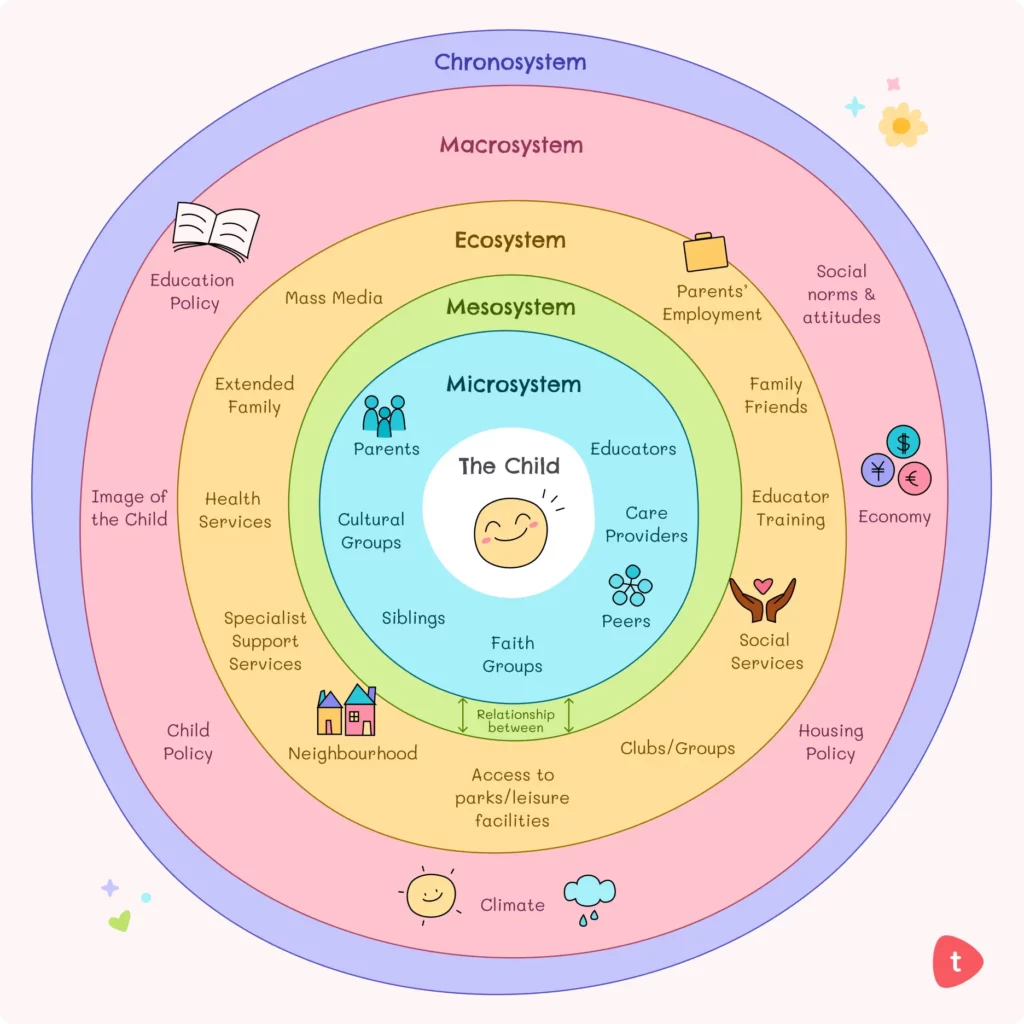

Student profiles in early years settings
While there are many ways to create a sense of belonging, a crucial initial step you can take is collaborating with the family to better understand the child. By using Bronfenbrenner’s ecological model to generate this understanding, you can take a multi-faceted and holistic approach to document relevant information about the child and their family to create a student profile. This ensures that the child’s individuality is at the core of their educational journey.
A student profile can help build an understanding of the child, their life, and the factors that influence development and learning. It can be especially insightful to collaborate with families and other key people in the child’s life to create a student profile. This free Student Profile resource provides you with a starting point for ensuring that the child’s strengths, abilities, and needs are all taken into consideration while providing support for them. A student profile highlights the various aspects that make the child unique, enabling you to accept and embrace the child’s life experiences so far.
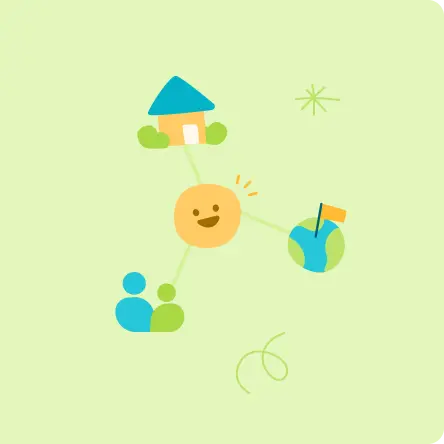
Fostering nurturing and belonging in the early years
You can also use the information gathered through student profiles as a valuable guidepost in the endeavour to cultivate belonging within early childhood settings. By establishing nurturing relationships, creating inclusive environments, collaborating closely with families, embracing cultural diversity, and championing equity, you can help children develop a profound sense of belonging that significantly enhances their overall development and wellbeing.
We have carefully crafted a comprehensive resource, A Sense of Belonging in the Early Years, to empower educators like you to create nurturing, inclusive environments where every child’s sense of belonging is deep and enduring. Grounded in principles that honour children’s unique identities, amplify their voices, and celebrate the rich tapestry of their diverse cultures, this booklet offers practical, actionable strategies and tips that you can readily implement. It’s your guide to fostering a robust sense of belonging among the children you support, ensuring their educational journey is both enriching and valued.

Strengthening the feeling of belonging in early childhood
Ensuring smooth transitions in early childhood is pivotal to fostering a sense of belonging and promoting holistic development. These transitions, whether from home to an early childhood education setting or from one educational level to another, can be significant milestones in a child’s life. Through understanding, collaboration, and empathy, you can create thoughtful transitions that prioritise the child’s unique needs and experiences.
The resource, Guiding Smooth Transitions for Young Children, will invite you to reflect upon current transition practices and consider how you can strengthen them. Through ongoing open communication with families, a nurturing and supportive environment, and a focus on building trusting relationships, we’re here to help you make these transitions as stress-free and positive as possible.
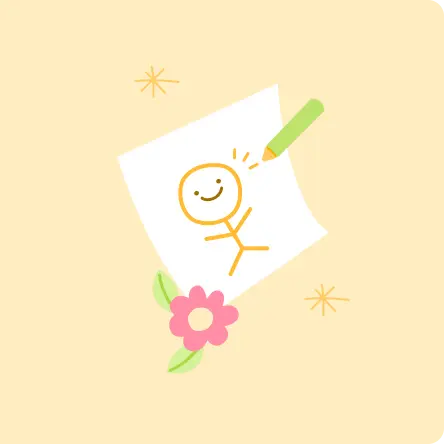
Through this collection of resources, we hope to highlight the critical role of a strong sense of belonging, especially in early childhood education and development. By placing children at the centre of their learning journey, fostering inclusive environments, and prioritising collaboration with families, we can empower the children in our care to thrive.

